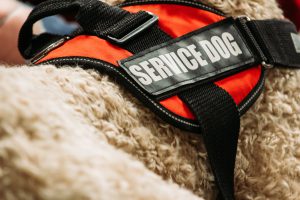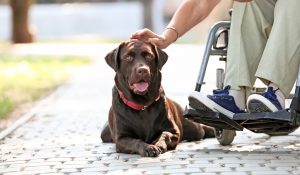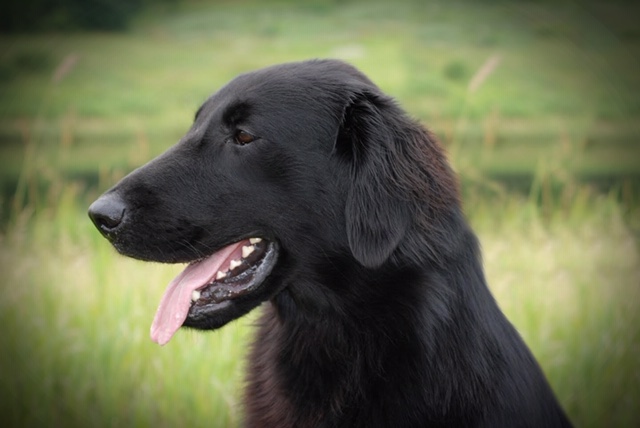
Guest Blog Post: Why BetterBred and UC Davis VGL canine diversity test
This article resulted in the FCRSA board putting to a vote their official endorsement of UC Davis VGL and BetterBred. As of January 9, 2019 the FCRSA Board has voted to endorse and recommends the use of the BetterBred Breed Management online software to assist members in analyzing and sharing UC Davis VGL tests and results.
Why Was UC Davis VGL and BetterBred Selected?
I’ve been asked to share how I selected UC Davis VGL for the genetic diversity test services and BetterBred for the analyses of VGL’s test results. Briefly, it was a four-part process, during which I, after conversations with other breeders: 1) determined that our breed could benefit from genetic diversity testing. 2) set goals for a genetic diversity testing program. 3) reviewed the genetic diversity and analysis programs that other breeds were using. 4) selected what I considered the best options because only one program met all of the goals for a genetic diversity testing program. Here is my process in more detail.
Why Does Our Breed Need Another Type Of Health Testing and/or Evaluation?
Despite our best research and breeding efforts, health concerns and cancer in Flat Coats seemed to be on the rise. However, new DNA tests and solutions to these health concerns are slow in coming and very costly. So what can we do to tackle these problems in the meantime, when our dogs’ lives depend upon the decisions we are making today? An option for us was to seek to maintain our breed’s genetic diversity while waiting for more disease-specific tests and health-data entry into FlatcoatData. Genetic diversity has been studied in many species, including dogs. It has health, reproductive, and adaptive benefits both to individuals and to populations (breeds).
Breeders have long used an estimate of genetic diversity known as pedigree-based coefficients of inbreeding (PB COIs). PB COIs are statistical estimates first created in the early 1900s to evaluate relationships between breeding animals based on their pedigrees. Despite their long-term use, PB COIs are known to have some serious flaws.
- PB COI’s are pedigree based calculations that assume the very first individual dogs in the calculation are unrelated – so it’s a 5 generation pedigree COI, then all the individual dogs in the 5th generation are assumed by the calculation to be unrelated, and if it’s a 10 generation COI then any individual dogs in the 10th generation are assumed to be unrelated.. This is almost never the case in purebred dogs. So unless you do a calculation on the full database back to founders, inbreeding is always underestimated.
- PB COI’s are merely statistical estimates of probability based on available pedigree data. As a result, every puppy in a litter has the same PB COI, even though we know puppies vary greatly in the genes they inherit from each parent. So from the outset, we know COIs are inaccurate.
- Missing pedigree data further reduces the accuracy of PB COIs. The more missing relatives we have, the worse the effect.
- COIs take significant computing power so most programs limit them to 10 or 12 generations even though more generations slightly improve the accuracy.
- When compared with genomic testing of individuals, we know that PB COIs fall short of actual genetic evaluation.Today, we have the ability to investigate a dog’s actual genetic make-up, something that couldn’t be done in the 1900s. Knowing a dog’s genome enables us to get genetic-based (GB) or GB COIs, which are much more accurate than PB COIs, since they are based on the dog’s actual genes.
My discussions with some fellow dog breeders resulted in an agreement that genetic diversity testing could be a viable tool we can use now to improve the health of our dogs and our breed. Our reasoning was that research was telling us that both simple and complex genetic diseases are more likely to be found in dogs with common ancestors. So, my search began for genetic diversity tests that would be available to our various breeds.
Goals for Our Breed’s Use of a Genetic Diversity Testing Program
To evaluate the available tests, I set the following goals to ensure that any genetic diversity testing program we committed to would be useful to owners and breeders, as the guardians of our dogs and breed.
- Provide our membership with an accurate assessment of our breed’s actual genetic diversity.
- Provide our membership with updates on our breed’s genetic diversity as new information becomes available.
- Provide an owner with an assessment of the state of each individual dog’s actual genetic diversity.
- Provide the dog owner with a means to analyze their dog’s data so they could make meaning of it.
- Provide breeder’s with means to analyze genetic diversity test data to assist them with their mate selection, possible litter outcomes, and puppy selection.
- Select a genetic diversity test that will assist breeders in maintaining the genetic diversity that will help to preserve the health of our breed.
Goals 4 and 5 were imperatives for me. I wanted more than just a test but felt it essential that the test also had a means of interpretation or analysis available to owners and breeders, specifically for possible mate selection and litter and puppy evaluation.
Review of Possible Testing Organizations
We found three genetic diversity tests that were available to dog breeders:
- University of California at Davis Veterinary Genetics Lab works closely with Betterbred.com (UC Davis VGL/BB)
- Embark
- Genoscoper Laboratories (Finland) I quickly eliminated Genoscoper Laboratories due to complications that may arise with language, shipping and the monetary exchange. This left UC Davis VGL and Embark to consider.
– For those that believe Genoscoper could be a viable option now: Genoscoper was bought last year by Mars Petcare and incorporated it into their Optimal Selection Test. They do have a breeder tool which rates matings based on a “Genetic Health Index”. This tool heavily weights known disease gene testing results and then adds in a measured heterozygosity. As we all know, the Flat Coated Retriever has few diseases we can test for. This means the Flat Coated Retriever test is mostly considering heterozygosity at a tiny fraction of the genome. Using measures of genetic relatedness (GR) instead is better than just using heterozygosity because relatedness includes the whole genome which comprises 2.8 billion pairs of DNA, and not merely a tiny fraction.
Academic Credentials
Both UC Davis VGL/BB and Embark have equal academic credentials. Obviously, VGL is part of UC Davis, a top US research institution. Embark has partnered with Cornell University College of Veterinary Medicine, another leading US research university. I would not begin to challenge the merits of either of the two fine institutions (UC Davis VGL and Cornell).
About UC Davis VGL and BetterBred VGL Is a not-for-profit, veterinarian laboratory, owned by the Board of Regents of the State of California, serving the UC Davis School of Veterinary Medicine. They primarily service their own researchers and those at UC Davis, but they also sell research-level DNA testing done on- site to the public, private organizations, and animal registries. Their primary mission is research and education.
The VGL genetic diversity test looks at 33 short tandem repeats (STR) DNA sequences across each dog’s genome. STR analysis is one of the most useful methods we have today for genetic analysis. The VGL genetic diversity test was developed specifically and only for assessing the genetic diversity and population structure of purebred dog breeds.
Today, this test is the only one available that identifies the most important haplotypes in both the Class I region and Class II region of the dog leukocyte antigen (DLA), which is the area of the DNA that controls the dog’s immune system. It was developed chiefly by Dr. Niels C. Pedersen, who specializes in immune function and autoimmune disease, Dr. Cecilia Penedo who is renowned in her field of animal genetics and works on a variety of domesticated species, and Dr. Benjamin Sacks, who is a very experienced conservation geneticist and biostatistician. None of them benefit financially from the test and all are well published.
Although VGL had this cutting-edge test, they did not have a functional way for dog owners and breeders to make sense of and use its results. So VGL works closely with Betterbred, a small, privately owned for-profit company that was an outgrowth of the Standard Poodle project.
Natalie Green Tessier is the founder of BetterBred, a longtime breeder herself and was part of the research team led by Dr. Niels C. Pederson. The research team discoveries led to the development of the VGL genetic diversity test. Natalie co-authored the major study of genetic diversity in Standard Poodles, which analyzed a full breed and compared it to an extensive pedigree and health database. Although Natalie Green Tessier is not a scientist by degree, she had the vision and gathered the proper people to create a web-based program for analyzing the UC Davis VGL genetic test data. This team includes the UC Davis VGL Director who sits on the BetterBred Science Advisory Board. Betterbred’s program allows breeders and dog owners to have access to advanced breeding tools that allow an owner or breeder to better understand their dog’s genetic diversity results, and assists breeders in mate selection, possible litter diversity, and puppy selection.
Upon receiving the request for this article I contacted Natalie Green Tessier and UC Davis VGL for more information. Their genetic diversity test uses a method that is used in human forensics (crime, paternity, etc.) for identification and relationship probability. The test has two components: 1) the full International Society of Animal Genetics recommended parentage test, and 2) carefully selected DNA markers, using human grade protocol, that are used for forensic identification in the US and around the world. This method is most effective for assessing relationship probabilities based on recent ancestry, not ancient, which is most appropriate for modern dog breeds. These DNA markers are selected specifically because they are not associated with any known trait, which is unlike the other commercially available tests and unlike how breeders typically think of DNA testing.
About Embark Embark is a privately owned, for-profit company founded by two brothers, Adam and Ryan Boyko. Adam is on the faculty at Cornell and is an expert in genomics and computational biology. The company’s mission is to sell dog DNA tests. Embark uses clinical-grade, single nucleotide polymorphisms (SNP) or single-base pairs to provide comprehensive results using 200,000+ genetic markers. The data that dog owners submit also contributes to Embark’s proprietary genetics research, which they claim will help dog owners optimize nutrition, exercise, allergies, and prevent a variety of heritable conditions.
Embark’s technology, intellectual capital, and research-focus are intended to improve preventative veterinary care.
As a result, Embark provides threefold results:
- Results akin to human tests like 23&Me, so include breed identification for mixed- breed dogs, breed ancestry, and a relative finder.
- An evaluation of your dog’s genes against every known (presently, 165) canine DNA test for simple genetic diseases and conditions, such as progressive retinal atrophy and shedding. However, only two of these diseases pertain to FCs: Degenerative Myelopathy and Malignant Hyperthermia. There are no gene tests for complex diseases such as cancer, autoimmune diseases, etc.
- A GB COI that measures the proportion of the genome where the genes on the mother’s side are identical by descent to those on the father’s side. This is presented as a single number and an image of the inbred and outbred portions of that dog’s chromosomes. Embark does not provide any analysis of these results or tools to use these results for mate selection, litter expectations, and puppy selection.
Following this analysis, I had three additional questions:
- Would either of the remaining two continue to follow our breed’s testing and provide updated reports?
- Would either of the remaining two have a vision for future uses of genetic testing?
- What are the costs involved and what do you receive in return?
Do UC Davis VGL/BB and Embark Meet Our Goals?
While both UC Davis VGL/BB and Embark provide genetic diversity data, they use different genetic testing strategies. UC Davis VGL/BB uses STRs and Embark used SNPs. Both are currently considered valid methods of determining diversity so rather than scrutinize their methods, we must consider how well each organization meets the goals for our breed’s use of genetic diversity testing, laid out earlier.
Understanding the genetic diversity data
Having a dog’s genetic diversity data on a certificate, report or picture does not provide the owner or breeder with the ability to understand these results, nor know how to use it in their own breeding programs. After the first few tests, it became abundantly clear that owners and breeders needed an additional help to interpret and use these data. Embark does not offer this service but UC Davis VGL/BB stated the following on their website:
“An additional goal of this study is to contribute this genetic information to a web repository, hopefully under the control of the registry. The best format for such a repository and testing has been provided by Standard Poodle breeders.
This information could be incorporated into a mate selection service that will allow a breeder to identify, among all of the dogs tested, potential mates that would be most ideal for increasing genetic diversity in their litters – https:// www.betterbred.com/.”
In my opinion, this was an excellent recommendation of an online program/company to analyze the genetic diversity test data to aid in the understanding and use of such data. This year, UC Davis VGL have gone under contract to Natalie Green Tessier/BetterBred to sell the UC Davis Genetic Diversity Test. As a result, when tests are purchased through BetterBred, the dog’s data is automatically downloaded from UC Davis VGL to BetterBred, improving accuracy and accessibility. Again, this shows strong support between UC Davis VGL and BetterBred.
State of the Breed Reporting
Embark does not offer a genetic diversity “State of the Breed” report nor any further updates.
UC Davis VGL/BB did as they stated that they would publish their “State of the Breed” findings in an initial report at the end of phase 1 with continued updates as new findings appeared. We have had two updates from UC Davis VGL/BB since the initial report came out.
What Types of Clients are Embark and UC Davis VGL/BB trying to reach
You can also see significant difference between the organizations when you look at their websites, specifically to whom they seem to be marketing their product. I encourage you to visit: embarkvet.com, vgl.ucdavis.edu, and BetterBred.com.
Costs and Benefits of Embark and VGL/BB
These two organizations offer different costs, benefits and value.
Embark
Fees: $199 per dog. Does offer coupons on occasions
Benefits
- Will test 165 genetic conditions for breeds, two of which are applicable to the Flat Coated Retriever: Degenerative Myelopathy and Malignant Hyperthermia.
- Offers a GB COI and chromosome image
Additional benefits:
- Healthy aging plan for each dog
- Traits of your dog from color to body size.
- Breed Ancestry (identifies all the various breeds that make up your dog)
- Relative Finder (assists you in finding your dog’s relatives and puts you in contact with them if they are in the Embark database. Currently only available to mixed breed dogs) o Does not provide any resources to assist owners, breeders and breed clubs in interpreting the GB COI and use it to maintain or increase diversity in a breeding program, or manage a breed.
UC Davis VGL and BetterBred
UC Davis VGL – Betterbred, there are two options for testing
Fees:
Genetic testing only through VGL: $80 after breed’s initial research phase. Results include report and certificate. UC Davis VGL does offer coupons on occasion.
Genetic testing and a BetterBred Membership:
Benefits
- Provides a Genetic Diversity Analysis Certificate and Report
- $80 for genetic test plus one of three memberships: Free Public, Monthly $19, Yearly $199 plus tax if applicable
- If the VGL test is purchased through BetterBred, they will automatically download the dog’s test to the BetterBred database (new in 2018).
- BetterBred offers a multiple dog test discount (new in 2018).
- Unlimited entry of multiple dogs with any BetterBred membership.
- Discounts on courses
- Offers multiple dog and litter discounts Issued a Genetic Diversity State of the Breed report in 2017 at the end of Phase I and provides continued updates on their website.
Additional services offered through BetterBred:
Free Public Membership
- Submit all the dogs you own
- See all your dog’s genetic diversity results and analysis
- Expanded profiles, including health test results, for all your dogs
- See the “Breed Page”
- See the “Breed Comparisons”
- See “Public Dog Profiles”
- See “Litter Profiles”
- Receive “Newsletters”
Monthly $19 or Yearly $199 plus state tax as applicable Includes all the Free Membership Services above, in addition members will receive:
- Unlimited access to public genetic analyses
- Unlimited access to public potential breedings
- Unlimited access to litter analyses
- Unlimited access to Litter Summaries, available to the public so puppy families can see them
- Discount on courses and other surprise benefits!
- Offers a monitored Flat Coated Retriever Genetic Diversity Facebook Page.
- Unlimited use of all the breeding tools:
- Potential Breedings By Genetic Value
- Potential Breedings by Similarity to Breed
- Potential Breedings by Genetic Similarity Between Mates
- Potential Breedings by Color
- Potential Litter Analysis and Litter Summary
- Chat live online or leave a message with any questions you may have
- Access to blogs
- Offers a free beginners course for understanding genetic diversity and its analysis
Conclusion
Of the two options for genetic testing, only UC Davis VGL/BB meets all of the goals of a breed’s genetic diversity testing program. By comparison, Embark only meets one of our six goals and neither of the most important. UC Davis VGL/BB is more expensive over time for those who use the breeding tools but is only one third the price for owners wanting to submit their dogs.
After this writing, I am even more supportive of using UC Davis VGL/BB for the genetic diversity testing and analysis of our Flat Coated Retrievers. I am thankful for the continued support from the FCRSA board, FCR Foundation, and those members who contribute to the FCR Foundation as the foundation provides the $25 reimbursement for each test ordered. I also wish to thank all those who have tested their dogs and entered them into BetterBred. The future of our breed is better because of you and your efforts.
Barbara D Krieger
Flat Coated Retriever Genetic Diversity Breed Representative
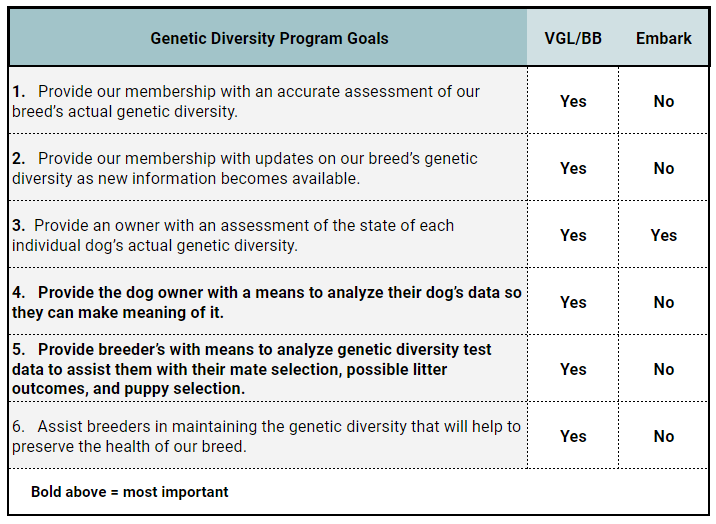
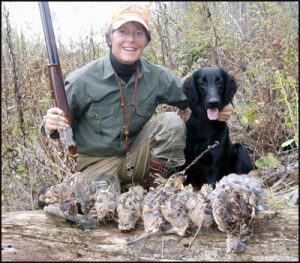
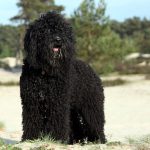 Previous Post
Previous Post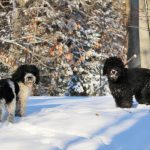 Next Post
Next Post
